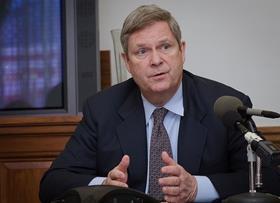
Agriculture Secretary Tom Vilsack has announced that the US Department of Agriculture’s (USDA) Foreign Agricultural Service (FAS) is awarding US$200m to more than 70 US agricultural organisations to help expand export markets for the country's farm and food products, through the Market Access Program (MAP) and the Foreign Market Development (FMD) Program.
“USDA and the US agricultural industry work together in a unique public-private partnership to open and grow markets around the world for high-quality, American-made farm and food products,” said Vilsack. “The federal investment in these programmes is multiplied by industry matching funds, not only boosting agricultural export revenue and volume, but also supporting farm income and enhancing the overall US economy.”
Under MAP, FAS will provide US$173.5m in fiscal year 2017, funding to 70 non-profit organisations and cooperatives who will use the funds to help US agricultural producers promote their products to consumers around the globe through activities such as market research, technical assistance, and support for participation in trade fairs and exhibits.
MAP participants contribute an average 137 per cent match for generic marketing and promotion activities and a dollar-for-dollar match for promotion of branded products by small businesses and cooperatives.
Under FMD, FAS will allocate US$26.6m in fiscal year 2017 funds to 26 trade organisations that represent US agricultural producers. FMD focuses on generic promotion of US commodities, rather than consumer-oriented promotion of branded products, and preference is given to organisations that represent an entire industry or are nationwide in membership and scope.
The organisations, which contribute an average 130 per cent cost share, conduct activities that help maintain or increase demand for US agricultural commodities overseas.
Organisations receiving significant funding include the California Table Grape Commission (US$3.12m), the Florida Department of Citrus (US$3.88m), Pear Bureau Northwest (US$2.89m), and the Washington Apple Commission (US$4.86m).



